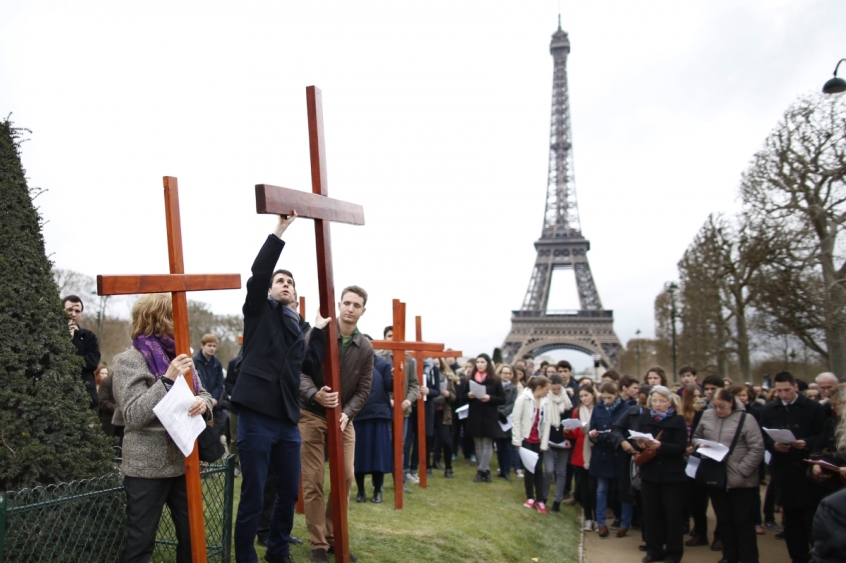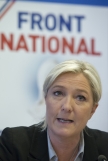
The French National Council of Evangelicals (CNEF) – roughly speaking, the local equivalent to the UK Evangelical Alliance – has recently published an upbeat report on evangelical churches in France.
There are certainly a lot more églises évangéliques in France now than when I arrived in 1985 – 1,600 more than in 1970, according to the report, for a current total of over 2,000. The survey also details progress in national coverage: 87 per cent of the country is now said to be within half an hour's drive of an evangelical congregation. There's a growing open-mindedness, too: many evangelical churches that aren't CNEF affiliates are included in the statistics.
All this is encouraging news. But as with many reports rich in statistics, it's worth digging a little deeper to get a broader picture.
Firstly, the report admits it doesn't provide details of how big congregations are – and doesn't distinguish between genuine plants and splits. One sad fact of evangelical churches in France in particular is their tendency to divide rather than multiply. I'm no stranger to this: the church I planted in 1989 later broke acrimoniously into at least four bits. Four churches where there was previously one looks good on paper, but all too often it's a very different story for those involved.
This fragility is perhaps connected with another feature of the CNEF report: the exclusion of historic protestant churches. Presbyterian in structure, they are perceived as being more liberal in theology and ethics than their evangelical counterparts. However, they have the benefit of a longstanding ecclesiastical and institutional heritage – and the report's maps undeniably show that evangelicalism has thrived most in historic protestant soil. While there are often good relations between pastors locally, many evangelicals tend to look down on their traditional protestant brethren as woolly and out of touch – and in forfeiting closer ties, they miss out on some inherited wisdom which might stave off more splits and save history from repeating itself.
In some evangelical circles, you can get the firm impression that the Gospel arrived in France some time after World War Two. Indeed, a landmark book on evangelical missionaries in France laments the decision of the post-war church-planters to turn their backs on the historic Eglise Réformée, to the detriment of both parties – and that's before even contemplating anything ecumenical!
At the other end of the spectrum, while the report includes many completely independent evangelical churches, it misses out many others – first and foremost churches made up largely of migrants from Africa. It dismisses such omissions as marginal, but these are perhaps the fastest-growing churches today. Hop on a bus in my city, and chances are the person you'll see reading a Bible or humming a worship song, unabashedly testifying to their faith, is from one of those congregations. Such churches are often fiercely insular; there needs to be a conscious effort to include them, in order to nurture stability and help them integrate.
By and large, these gaps in the CNEF figures are good news – they mean the picture for the Gospel in France is even better than the statistics show! However, they can lead to some unintended consequences. In my home city, we're inundated with eager church-planting teams who have identified us as a mission field, due to the massive under-reporting of the reality on the ground. Of course, there's still plenty of room, and the newcomers' enthusiasm seems unquenchable, but even they were a little disconcerted to discover that the CNEF figures didn't tell the whole story by quite a margin.
So what lessons are to be learned from this report? Counting Christians and mapping their spread has been going on since the Day of Pentecost. It's good to see, even if only imperfectly, something of how far we've come and the challenges that remain. But as King David learned to his cost (1 Chr 21), there's more to being the people of God than counting how many of them you have. Statistics can proclaim exciting facts, but also conceal some less palatable ones. They can tempt us into dead works and leave little room for surprising missionary calls, perseverance in the face of apparent failure – and God's inimitable tendency to upset our best-laid plans in favour of his improbable but vastly better ones.
My hope is that the Christians these figures represent increasingly appreciate the breadth of the Body of Christ, representing as it does the infinitely varied facets of the wisdom of God (Eph 3:10), acknowledging and loving each other in Christ. If we seek his Kingdom like that, Jesus has promised to get on with building the Church – and I'll take that promise as applying to France, too.
David Buick pastors independent church Christ Pour Tous ('Christ for All') in Rennes, coordinates protestant prison chaplaincy for north-west France, and currently chairs the local pastors' fraternal, working with Christians from all denominations and none, including CNEF affiliates.














